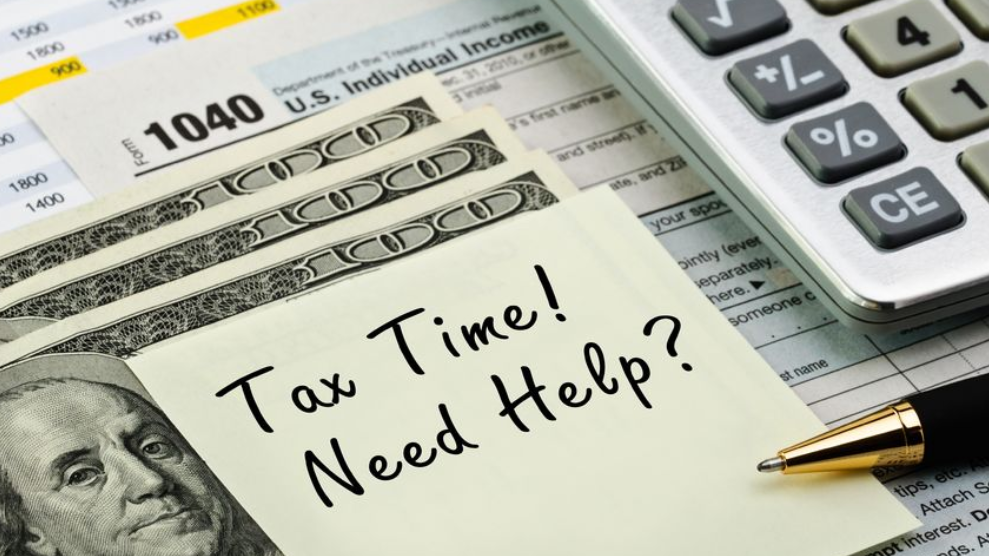TAX PAYMENT PLAN OPTIONS
If you don’t have the funds to pay outstanding taxes owed to the Internal Revenue Service, it’s important to immediately contact the agency and begin working on a tax debt payment plan. US Tax Relief can help you determine ways in which to settle your debt quickly and efficiently

What If I Don’t Make My IRS Tax Payment
If you choose to ignore your tax bill and don’t take steps to set up a payment plan, the Internal Revenue Service will act. There are numerous collection methods and consequences you can expect if you continue to let your tax debt go unpaid
Federal Tax Lien
If the government places a tax lien on your property or assets, they’re laying claim to your personal property. A lien doesn’t involve actual seizure, but it’s the step immediately prior to the IRS acting. A lien will generally be issued only if you owed more than $10,000 in back taxes.
Federal Tax Levy
If lien notices go ignored, the government will seize your property. This could mean wage garnishment, bank account seizure, or the selling of your possessions, like your home, cars, or other assets
What If I Can’t Make My IRS Tax Payment? Should I Still File?
Always file your tax return, even if you cannot afford to pay your outstanding balance. The IRS will enforce a failure to file penalty that must be paid in addition to your back taxes. Currently the penalty is .5 percent per month, which can increase to a maximum of 25 percent of your tax bill. The IRS also offers the Fresh Start Initiative, which can waive the failure to file penalty waived for up to six months
Can I Use Credit to Make Payments on My IRS Tax Debt?
Many taxpayers find it easiest to pay their tax bill or at least part of what they owe with a credit card. A taxpayer may pay with an American Express, Discover, MasterCard, Visa, or another debit card. The IRS accepts credit card payments through three companies: Link2Gov, WorldPay, and Official Payments. These payment processors charge a convenience fee of about 2 percent of your total bill balance.
While this can get the taxpayer out of hot water with the Internal Revenue Service, it may come with other consequences and costs; each credit card company will enforce its own fee schedule. If you do end up paying a fee, keep a record of it. The IRS allows taxpayers to claim this amount as a miscellaneous itemized expense.
Keep in mind that paying by credit card can also result in interest; however, many taxpayers find that credit card payments have lower interest rates and fewer penalties than IRS tax payment plans do.
While this can get the taxpayer out of hot water with the Internal Revenue Service, it may come with other consequences and costs; each credit card company will enforce its own fee schedule. If you do end up paying a fee, keep a record of it. The IRS allows taxpayers to claim this amount as a miscellaneous itemized expense.
Keep in mind that paying by credit card can also result in interest; however, many taxpayers find that credit card payments have lower interest rates and fewer penalties than IRS tax payment plans do.
What If My IRS Tax Bill is Too Large for Credit Card Payments?
If your tax debt is much too large for credit card payments, the IRS will take monthly payments. There are a variety of installment agreement payment plans. A tax expert can help you determine which repayment plan best suits your financial situation

Is Negotiating with the IRS Over Back Taxes Possible?
If you owe more than $50,000, or you can’t reasonably pay the outstanding balance owed in less than six years, it’s important to come up with a payment plan that the IRS will approve. The team of experts here at US Tax Relief can help you devise a solid IRS installment payment plan you’ll be able to realistically live with.
Your request will begin with a Collection Information statement found on Form 433-A. An IRS collector will analyze your information to determine what amount you can pay per instalment. These payment amounts are done at the discretion of the Internal Revenue Service.
When proposing a payment plan, offer to pay the amount of your income minus your necessary living expenses. This will be the cash you have left over after your life necessity costs. It’s unwise to propose a payment plan you can’t afford just to better your chances of approval. Once approved you won’t be able to renegotiate so make sure it’s a payment plan you can feasibly handle on your current wages.
When you propose the agreement, make the first payment concurrently. Continue to make these monthly payments by using payment slips and bar-coded envelopes provided in any notice you may have received, even if the IRS hasn’t yet approved your IRS tax payment plan. Collectors are more willing to work with taxpayers that make voluntary payments. You can make payments online, over the phone, through check or money order, and with a credit card, but it’s important to always pay without defaulting.
After your Installment agreement proposal has been approved, you can pay through two other specific options
Your request will begin with a Collection Information statement found on Form 433-A. An IRS collector will analyze your information to determine what amount you can pay per instalment. These payment amounts are done at the discretion of the Internal Revenue Service.
When proposing a payment plan, offer to pay the amount of your income minus your necessary living expenses. This will be the cash you have left over after your life necessity costs. It’s unwise to propose a payment plan you can’t afford just to better your chances of approval. Once approved you won’t be able to renegotiate so make sure it’s a payment plan you can feasibly handle on your current wages.
When you propose the agreement, make the first payment concurrently. Continue to make these monthly payments by using payment slips and bar-coded envelopes provided in any notice you may have received, even if the IRS hasn’t yet approved your IRS tax payment plan. Collectors are more willing to work with taxpayers that make voluntary payments. You can make payments online, over the phone, through check or money order, and with a credit card, but it’s important to always pay without defaulting.
After your Installment agreement proposal has been approved, you can pay through two other specific options
Direct Debit
You can ask your bank to automatically debit your checking account every month and send the payment to the IRS for you. So long as the account is open and funded, your payment won’t be late or missed—better ensuring your installment agreement is never revoked.
- Direct Payroll Deduction
You may also request a payroll deduction using Form 219, the Payroll Deduction Agreement. This asks your employer to send payments to the IRS every month using payment slips
SPEAK WITH ONE OF OUR TAX PROFESSIONALS TODAY
FREE CONSULTATION
What if I Owe More Than $50,000?
If you owe more than $50,000, you’ll need to submit Form 9465 and Form 433-F. You’ll need to list your lines of credit, accounts, real estate, and any other assets. You’ll also need to provide details on your employment, monthly income, and living expenses.
This application cannot be done online. If you have an outstanding balance that exceeds this amount, it’s vital to use the help of a tax expert to efficiently and quickly work out a deal with the internal revenue service before facing severe penalties
This application cannot be done online. If you have an outstanding balance that exceeds this amount, it’s vital to use the help of a tax expert to efficiently and quickly work out a deal with the internal revenue service before facing severe penalties
IRS Business Payment Plan
There is an IRS tax payment plan for small businesses. If your company is struggling and you owe an outstanding balance to the IRS, this may be a good option to pursue. Any business that owes $25,000 or less in back taxes can request what’s called an In-Business Trust Fund Express installment agreement. While this type of IRS tax payment plan doesn’t require a financial statement, your business must currently have employees on its roster. This installment agreement gives businesses a 24-month period to fully pay the outstanding balance. If the amount owed is less than $25,000 but more than $10,000, the business must set up a Direct Debit installment agreement. Businesses may apply online or over the phone
Can the IRS Refuse an Installment Agreement Proposal?
There are three reasons the IRS might reject a proposed installment payment plan
Unnecessary Living Expenses
If the IRS deems your living expenses extravagant, they will deny your payment plan proposal. Whether it be charitable contributions or large credit card payments, should the IRS balk at your living expenditures, they’ll likely refuse your offer.
Your Collection Information Statement is Incorrect
If the information provided on your Form 433-A, or Collection Information Statement is untruthful or incomplete, the IRS may assume you’re hiding income or property.
You’ve Defaulted on a Previous Installment Agreement
If you have already defaulted on a prior payment plan, the IRS may be hesitant to accept your new proposal.
If your installment agreement is rejected, you can negotiate again. If you haven’t already, speak with a tax accountant that can help you revise and prepare your next payment plan proposal to assure better chances of success.
What If I Can’t Afford to Pay Back the IRS
If you realize that you cannot feasibly pay back the total tax owed to the government, you may choose to pursue an Offer in Compromise. This is a settlement with the IRS to pay less than you owe. These can be extremely difficult to qualify, and it’s important to use the help of a tax expert to ensure the best chance of approval.
These can also take up to 12 months to process, and you’ll need to be making payments during the interim period. The IRS won’t consider an Offer in Compromise from a taxpayer who hasn’t been taking steps to start paying off what they owe
These can also take up to 12 months to process, and you’ll need to be making payments during the interim period. The IRS won’t consider an Offer in Compromise from a taxpayer who hasn’t been taking steps to start paying off what they owe
Can the IRS Revoke my Installment Agreement?
There are cases in which the IRS may revoke a taxpayer’s installment agreement. While you and the IRS are both bound by the agreement’s terms, should any of the following be true, the IRS may revoke the payment plan
Missed Payments
Should you not make your payments on time and in full, the IRS may revoke your installment agreement immediately. Generally, the Internal Revenue Service will wait anywhere from 30 to 60 days before revoking the payment plan and usually give you a warning or chance to reinstate the agreement by paying the outstanding balance for that monthly payment.
You Fail to File or Pay Taxes after the Installment Agreement
The IRS keeps tabs on your current returns and income tax requirements. A failure to file or failure to pay future income tax bills can result in revocation of the payment plan.
You Omitted or Misreported Information
If the IRS discovers you’ve knowingly provided incomplete or inaccurate information as part of the negotiation, they will revoke your installment agreement.
Do You Need an IRS Repayment Plan?
If you’ve asked yourself “How much do I owe the IRS?” it’s important to use the help of a tax professional that can help you determine your outstanding balance and the best way to pay it off. Many taxpayers who owe the IRS do not know where to start if they are unable to pay the full amount in one lump sum. The IRS automatic installment agreement can assist them with avoiding immediate collection actions but may still be too expensive on a monthly basis and also will lead to increased interest and penalties over time. US Tax Relief assists taxpayers with identifying the correct IRS tax payment plan based on their individual circumstances. A person in Nebraska that works at a beef processor will have a different set of circumstances, options and debt owed than another person who lives in Arizona and works at a retail store. The professionals at US Tax Relief have experience working with taxpayers across the United States and have the knowledge of how differing locations can impact how the IRS views an individual’s financial situation.
If you need an IRS tax payment plan, choosing US Tax Relief will help you save time, money and stress. Whether you require assistance with filling out an IRS tax payment plan form or checking a pre-existing IRS tax payment plan balance, we can help you pay off what you owe to the government quickly and efficiently.
Our services will begin by determining which IRS payment agreement you should request by undergoing a thorough investigation of your finances and income. Our tax attorneys will work on your behalf with the IRS to negotiate the best possible payment agreement for you personally. Call us for more information about our program and how you can get out of tax trouble today (877) 420-2341.
If you need an IRS tax payment plan, choosing US Tax Relief will help you save time, money and stress. Whether you require assistance with filling out an IRS tax payment plan form or checking a pre-existing IRS tax payment plan balance, we can help you pay off what you owe to the government quickly and efficiently.
Our services will begin by determining which IRS payment agreement you should request by undergoing a thorough investigation of your finances and income. Our tax attorneys will work on your behalf with the IRS to negotiate the best possible payment agreement for you personally. Call us for more information about our program and how you can get out of tax trouble today (877) 420-2341.

Speak With One Of Our Tax Professionals Today!
SUBMIT








